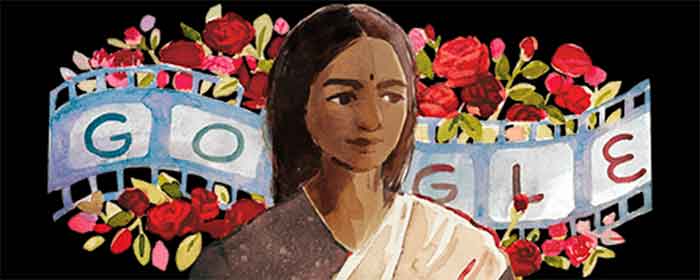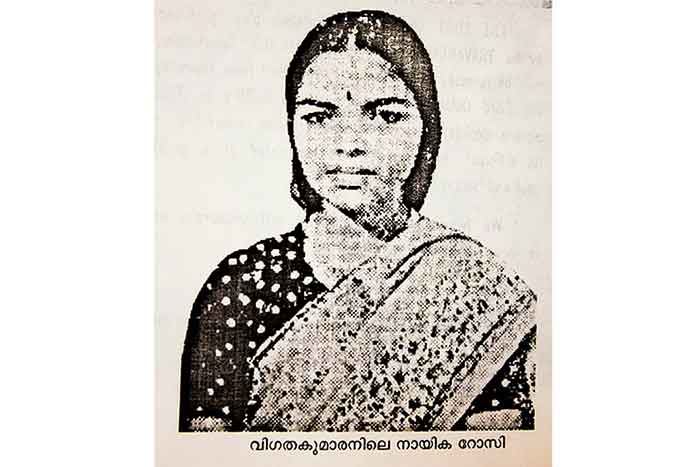
Today’s Google Doodle features an ode to PK Rosy, a long-forgotten first Malayalam cinema Dalit actress also known as ‘Rajamma’, ‘Rosamma’ and ‘Rajammal’. This is not only a great moment to see that her participation has been honoured; rather it is a moment to feel sorrow for the state of Indian cinema and academia, which has taken decades to at least notice her part in the establishment of India’s cinematic tradition.
This is not due to a lack of historical awareness, but rather to the fact that much of the knowledge about the development of Indian cinema comes from the film industry’s social elite. There are a few sources that name the first Dalit leading actress of cinema, but the fact that her first reference occurred more than three decades after the release of her debut film raises significant doubts and poses serios questions about her absence. There are a lot of resources available for upper caste actors, actresses, directors, and producers in Indian cinema and academia, but for Dalits and people from lower castes, the fact that PK Rosy, the first heroine in Malayalam cinema, was never acknowledged is enough to demonstrate how important caste is.
Situation of Indian Cinema during the time of PK Rosy

When Indian film originally got established, it was mostly controlled by ruling caste and class. There was a severe lack of caste equality in the early phase of Indian films. Not only did PK Rosy experienced backlash from the so-called higher caste in the Malayalam film where she worked for portraying a Nayar woman, but every region where early cinema was being produced concentrated on the casteist location of society. The film sets were meticulously maintained in accordance with the local social structure. The filmmakers of the west like Alexander Korda mentioned for the filmmaking in India that it was very difficult to manage the filming of cinema because of the caste mindset of the involve persons. Upper castes who were working in the cinema was following the hierarchical setup of the Hindu society and they had made distance with the low castes while films were making. Korda mentioned that the idea of purity and pollution was so high that people were not standing on the same carpet.
Concerns of Caste
During this time when movies were being made, segregation and distancing were typical casteist practises. It’s interesting to note that the idea of caste superiority being used to assign seats, also worked in theatres when it came to seating arrangements. Certain historical examples demonstrate that when payments were being made to individuals who belonged to higher castes, it was very difficult to pay them because they were unwilling to accept the money because they viewed it as impure. They consider that when the money went from one person to another person, and while it was being passed around, there was chance that it would come into contact with a member of a lower caste. When it comes time to hand over payment to people who belong to lower castes, it was required to throw the money on the ground so that the lower caste members can pick it up. This made it very difficult to pay the individuals who were involved in the films. The difficulties of filming in that era due to the caste system were not unique to Korda, but almost most of the western filmmakers mentioned it. It was the world when a woman from a low caste Dalit family struggled to reach highest echelons of Malayalam cinema.
PK Rosy’s life, struggle and times provides not only the ground for the remembrance of her contribution in the Indian cinema but it also opens up the deep ingrained caste centric mindset of Indian academic works and cinematic world and validates that ‘other’ absence depends on the someone’s presence.
Vikash Kumar is a doctoral student at Jawaharlal Nehru University, Centre for Historical Studies. His studies focus on the representation of caste in film, the geography of visual culture, and the construction of Dalit identity.

















































